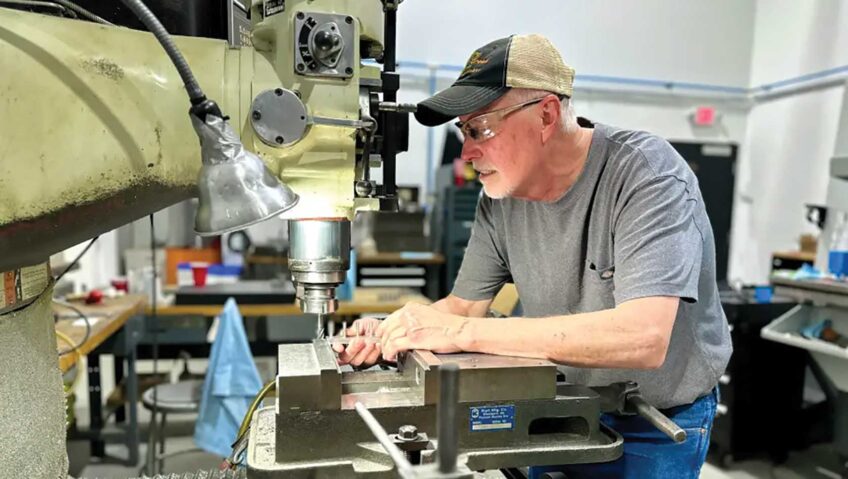The indictment of former Massachusetts House Speaker Salvatore F. DiMasi on public corruption charges is fueling calls for tough ethics reforms and shining an unflattering spotlight on the workings of state government.
Gov. Deval Patrick said he and other top leaders need to move quickly to approve sweeping ethics reforms.
“People’s faith and trust in government have been shaken,” Patrick said last Thursday during his monthly radio show on WTKK-FM. “It is really important that we move on all of this.”
The House and Senate have approved separate ethics bills and Patrick has proposed his own reform package.
Patrick said his top priorities are strengthening the power of the state Ethics Commission, giving the secretary of state subpoena authority to investigate campaign finance violations and sharpening rules limiting gift-giving to lawmakers.
The House and Senate bills would also adopt tougher criminal sanctions, including setting a maximum penalty of 10 years in prison and a $100,000 fine for bribing a state official.
Critics have said the Senate bill would weaken the state Ethics Commission by requiring it to suspend civil investigation of an elected official if the attorney general decides to open a criminal investigation.
A six-member conference committee met for the first time last Thursday to work out a compromise version of the bills. The meeting was closed to the media.
The push for ethics reform came in the wake of a series of Beacon Hill scandals, including the indictment of former state Sen. Dianne Wilkerson, D-Boston, for allegedly accepting bribes and an ethics cloud that forced DiMasi to step down earlier this year.
The day after DiMasi appeared in court, Patrick, House Speaker Robert DeLeo and Senate President Therese Murray — all fellow Democrats — released a joint statement calling the indictments “deeply disturbing.”
“We have agreed that ethics reform legislation will be passed and signed into law swiftly,” the statement said.
The case against DiMasi hinges on the pursuit of two lucrative state contracts by software company Cognos spearheaded by Joseph Lally, the company’s former vice president of sales and one of DiMasi’s alleged co-conspirators.
Prosecutors say DiMasi pocketed $57,000 from Cognos for using his political muscle to ensure the company was awarded the contracts.
The first, a $5.2 million sale of software to the Department of Education, was approved while former Gov. Mitt Romney, a Republican, was in office. The second, a $15 million contract for software for the Executive Office of Administration and Finance, was approved in 2007 while Patrick was in office after the price was negotiated down to $13 million.
The Patrick administration later canceled the contract and Cognos returned the money.
The Massachusetts Republican Party called on Patrick to investigate any role his advisers might have had in the alleged scheme — saying the indictment raised red flags about their willingness to please DiMasi.
“Governor Patrick should immediately launch an investigation into the role his top advisers played in this sordid affair,” Mass GOP Executive Director Nick Connors said.
Acting U.S. Attorney Michael Loucks has said no other officials are implicated in the investigation, which followed a series of stories on DiMasi’s ethics troubles by the Boston Globe, but Patrick officials are referenced in the indictment.
In one e-mail, Lally allegedly refers to Administration and Finance Secretary Leslie Kirwan as “a rogue secretary” after she initially questioned the larger contract.
In the same e-mail, Lally reassures an unnamed Cognos official that “we are dealing with her boss and he is coaching us on how to handle the situation.” The official was not named, but has been identified in media reports as Patrick deputy chief of staff David Morales.
Patrick spokesman Joe Landolfi said the administration, including Morales, has cooperated with investigators.
“We are confident that any actions taken by the administration and David relative to this matter were entirely appropriate,” he said.
Patrick also defended members of his administration, including Kirwan.
“It was our team that referred it over to the inspector general,” he said on the radio.
Patrick also said he knew directly from DiMasi of his interest in the software contract, but was unaware of the other allegations revealed in the indictment.
“Not so much Cognos, but I certainly knew [DiMasi] was interested in this software,” Patrick said, while declining to answer more specific questions, including whether he had any part in the final approval of the Cognos contract, citing the investigation.
A 2008 investigation by state Inspector General Gregory Sullivan, requested by Kirwan, found the contract did not comply with state rules and should be voided.
(Associated Press)






